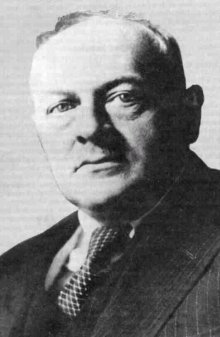Max Scheler (1874-1928) was born in Munich. His mother was Jewish, his Father a protestant, and he himself converted to Catholicism at the age of fourteen. He studied in Munich and Berlin and taught at the universities of Jena and Munich.

Scheler was one of the most colorful of the early phenomenologists, working all his life to develop an ethical personalist philosophy. His main inspiration came from Edmund Husserl (1859-1938), but he also carried on a dialogue with Immanuel Kant (1724-1804), Henri Bergson (1859-1941) and Friedrich Nietzsche (1844-1900).
His work has formed part of the foundation for personalist thought, for instance influencing the personalism of Berdyaev in Russia, the dialogical personalists in Germany, and the personalism developed by Wojtyla in Poland.
Scheler’s thought focuses on human emotions and human nature. He shows that the ego, reason, and consciousness presuppose a personal sphere – there is no such thing as pure ego, pure reason, or pure consciousness. This implies a critique of the positions of Husserl, Kant, and German idealism. It is the human “heart” or the seat of love, rather than a transcendent ego, reason, or will, that is the essence of human existence.
Scheler distinguishes amongst various types of emotion, many of which are hidden and personal, but emphasizes love as the core of them all. Drawing upon Blaise Pascal (1623-1662), Scheler argued that humans are fundamentally loving and that love and the emotions have their own logic quite different from the logic of reason.
Scheler thus inscribes himself in the classic and recurring philosophical struggle between “mind and heart,” and in stressing the rationality of the emotions, he develops his own type of emotional philosophy. Humans are not characterized by emotions alone, but we experience the world and acquire its values and objectivity through the emotions. This fusion of emotions and reason becomes an important component of personalism.
